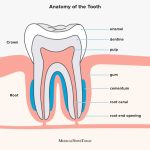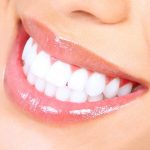Cold Water Sensitivity: Why Your Teeth Hurt and How to Find Relief
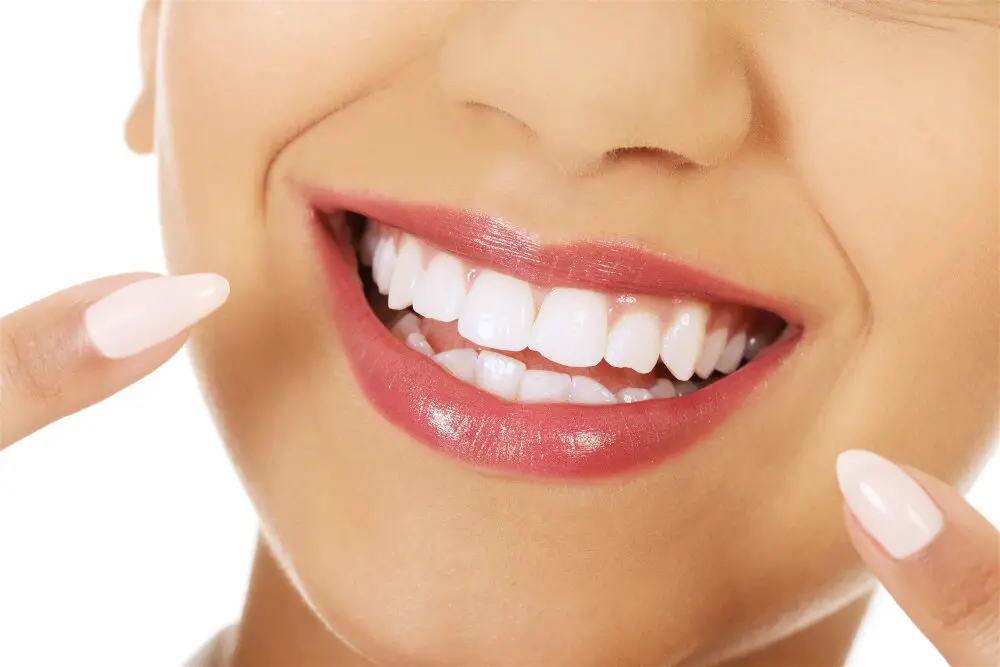
Cold water sensitivity is a common dental problem that affects millions of people worldwide. It is characterized by sharp, shooting pain in the teeth when exposed to cold water or air. This condition can be incredibly uncomfortable and can make simple tasks like drinking water or breathing in cold air feel unbearable. The cause of cold water sensitivity varies from person to person, but it is often a sign of underlying dental issues such as tooth decay, gum disease, or enamel erosion. Fortunately, there are several ways to find relief from cold water sensitivity, and with proper care and attention, it is possible to prevent this condition from worsening. If you’re struggling with cold water sensitivity, you’re not alone. Many people experience this uncomfortable sensation and wonder what they can do to find relief. The good news is that there are several steps you can take to alleviate cold water sensitivity and improve your overall dental health. By understanding the causes of this condition and taking proactive measures to protect your teeth, you can enjoy cold drinks and foods without fear of pain or discomfort. Whether you’re dealing with mild cold water sensitivity or more severe symptoms, there are plenty of options available to help you feel better and maintain a healthy smile.
Cold water sensitivity is a common dental problem that causes discomfort or pain in the teeth when exposed to cold liquids such as water. This condition is typically caused by the exposure of the tooth’s dentin (the inner layer of the tooth) due to enamel erosion, gum recession, or tooth decay. When the dentin becomes exposed, it can trigger nerve pain and sensitivity in the tooth. Other factors that may contribute to cold water sensitivity include teeth grinding, aggressive brushing, acidic foods and drinks, and certain dental procedures. Fortunately, there are several ways to find relief from cold water sensitivity, such as using desensitizing toothpaste, avoiding acidic foods and drinks, wearing a mouthguard at night, and seeking professional dental treatment.
Cold water sensitivity occurs when the protective layer of enamel on your teeth is worn away, exposing the underlying dentin and nerve endings. This can be caused by a variety of factors such as brushing too hard, grinding your teeth, consuming acidic foods and drinks, or gum recession. When the dentin is exposed, cold water can cause the nerve endings to become irritated and send a sharp, painful sensation to the brain. It’s important to address cold water sensitivity as it can indicate a more serious dental issue. There are several remedies available, including using desensitizing toothpaste, avoiding acidic foods and drinks, and seeking professional dental treatment.
Finding relief is crucial when dealing with cold water sensitivity in teeth. The discomfort and pain caused by this condition can make even simple everyday activities like drinking water unbearable. Seeking relief through various methods, such as using desensitizing toothpaste or avoiding extremely cold drinks, can greatly improve one’s quality of life. Additionally, finding relief can prevent further damage to the teeth and gums, which can lead to more serious oral health issues. Taking action to address cold water sensitivity and finding relief can help individuals maintain their overall health and well-being.
Causes of Cold Water Sensitivity
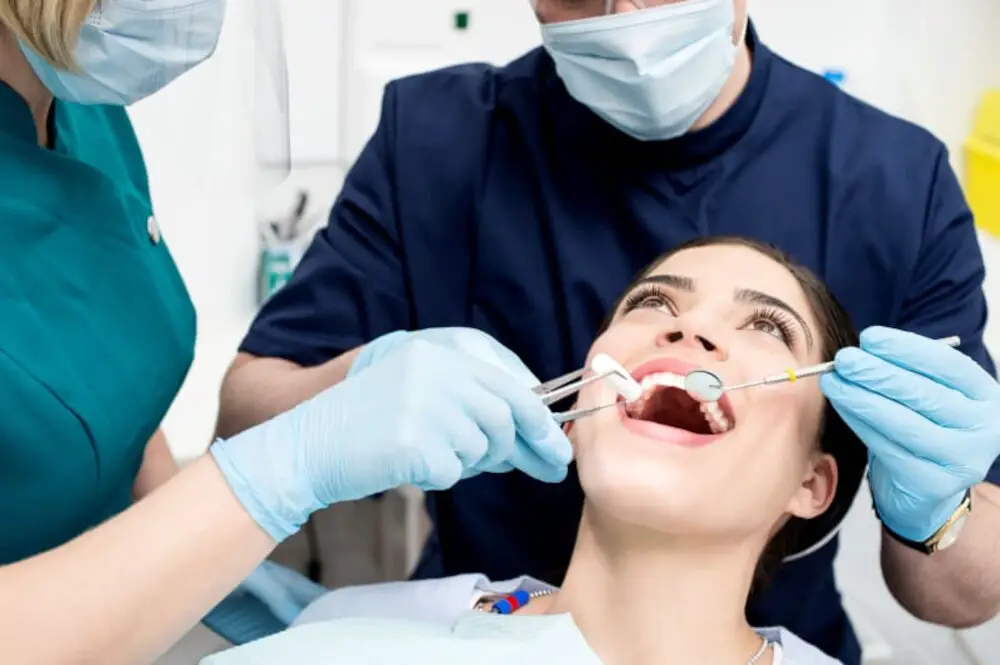
Cold water sensitivity is a common dental issue that affects millions of people worldwide. It is characterized by a sharp, shooting pain that occurs when the teeth are exposed to cold water, air, or food. The sensitivity can be mild or severe, and it can affect one or more teeth. There are several causes of cold water sensitivity, including tooth decay, gum recession, tooth grinding, and enamel erosion. Tooth decay is one of the most common causes of cold water sensitivity. When the bacteria in the mouth produce acid, it can eat away at the tooth enamel, exposing the sensitive dentin layer underneath. As a result, the teeth become more sensitive to cold water, air, and food. Another cause of cold water sensitivity is gum recession. When the gums recede, the tooth roots become exposed, which can lead to sensitivity. This can be caused by a variety of factors, including aggressive brushing, gum disease, and aging. Tooth grinding, also known as bruxism, can also cause cold water sensitivity. When people grind their teeth, it can wear away the enamel and expose the dentin layer, leading to sensitivity. Finally, enamel erosion is another common cause of cold water sensitivity. Enamel erosion can be caused by acidic foods and beverages, such as citrus fruits, soda, and sports drinks. It can also be caused by brushing too hard or using a hard-bristled toothbrush. Overall, cold water sensitivity can be caused by a variety of factors, and it is important to identify the underlying cause in order to find the most effective treatment.
Tooth decay, also known as dental caries, is a common dental problem that occurs when the bacteria in plaque produce acid that erodes the tooth enamel. This can lead to tiny holes or cavities in the teeth, causing sensitivity, pain, and discomfort. Poor oral hygiene, sugary and acidic foods, and a lack of fluoride can all contribute to tooth decay. Early symptoms include white spots on the teeth and sensitivity to hot and cold temperatures. If left untreated, tooth decay can progress to more serious issues such as infection, tooth loss, and even systemic health problems. It is important to maintain good oral hygiene and visit the dentist regularly to prevent tooth decay and catch it early if it does occur.
Gum recession is a common dental problem where the gum tissue surrounding the teeth wears away or pulls back, exposing the tooth’s root. It can be caused by a variety of factors, including genetics, poor oral hygiene, aggressive brushing, and gum disease. Gum recession can lead to tooth sensitivity, as the exposed root can be more sensitive to hot and cold temperatures than the tooth’s surface. It can also make teeth appear longer than usual, and in severe cases, it can lead to tooth loss. Treatment for gum recession depends on the underlying cause and severity of the condition and may include scaling and root planing, gum grafting, or surgery. Maintaining good oral hygiene habits, such as brushing twice a day and flossing daily, can help prevent gum recession.
Enamel erosion is a common dental problem that can cause sensitivity and pain in the teeth. This occurs when the hard outer layer of the tooth, the enamel, wears away due to acid exposure, brushing too hard, or grinding teeth. When the enamel is eroded, the underlying dentin layer becomes exposed, which contains tiny tubes that lead to the nerve of the tooth. This exposure can lead to discomfort or pain when the tooth is exposed to cold water, air, or food. It is important to address enamel erosion promptly to prevent further damage and discomfort. Treatment options may include desensitizing toothpaste, fluoride treatment, or dental bonding to protect the exposed area.
Cracked teeth can be a source of immense pain and discomfort, especially when exposed to cold water or air. This type of dental injury is often caused by trauma, biting down on hard objects, or even just wear and tear over time. When a tooth is cracked, the sensitive nerves inside can become exposed, leading to sharp pain or a dull ache. It’s important to seek dental treatment for a cracked tooth as soon as possible, as it can lead to further damage or infection if left untreated. Your dentist may recommend a filling, crown, or even a root canal depending on the severity of the crack.
Dental procedures are an essential aspect of maintaining good oral health and preventing dental problems. These procedures range from routine cleanings and check-ups to more complex treatments such as root canals and dental implants. In cases of cold water sensitivity, dental procedures such as fluoride treatments, desensitizing agents, and dental sealants can provide relief. Fluoride treatments help to strengthen the enamel of the teeth, making them less sensitive to temperature changes. Desensitizing agents work by blocking the nerve endings in the teeth that cause pain, while dental sealants create a protective barrier over the teeth to prevent sensitivity. It is essential to consult with a dental professional to determine the best course of treatment for cold water sensitivity and to address any underlying dental issues that may be contributing to the problem.
Symptoms of Cold Water Sensitivity
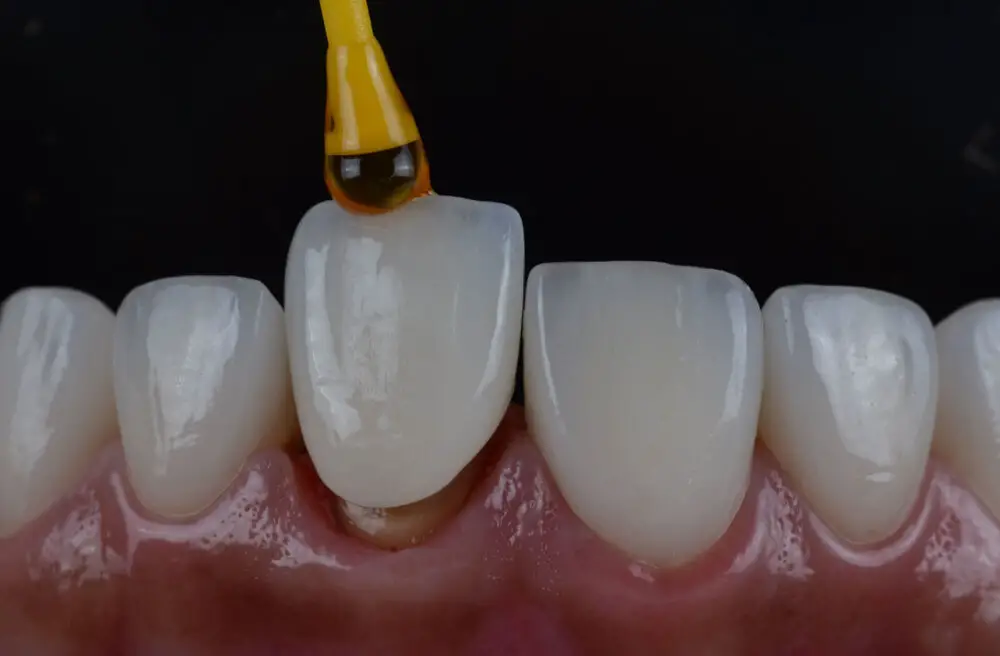
Cold water sensitivity is a common dental problem that affects millions of people worldwide. It is characterized by a sharp and sudden pain in the teeth when exposed to cold water or air. The symptoms of cold water sensitivity can vary from mild to severe and can be triggered by different factors. Some of the common symptoms of cold water sensitivity include toothache, sensitivity to hot or cold drinks, pain when biting or chewing, and discomfort when brushing or flossing. Other symptoms may include swollen gums, bad breath, and bleeding gums. If you experience any of the symptoms of cold water sensitivity, it is important to seek dental advice to determine the underlying cause of your condition. Some of the common causes of cold water sensitivity include tooth decay, gum disease, enamel erosion, and cracked or chipped teeth. Your dentist may recommend various treatments to alleviate your symptoms, depending on the severity of your condition. These treatments may include desensitizing toothpaste, fluoride treatments, dental restorations, or gum surgery. In addition, practicing good oral hygiene habits and avoiding certain foods and beverages may help prevent cold water sensitivity and other dental problems.
Cold water sensitivity is a common dental issue that causes sharp pain or discomfort when consuming cold beverages. This condition is caused by the exposure of dentin, the sensitive layer beneath the enamel, to extreme temperatures. The pain can vary from mild discomfort to excruciating and can affect one or multiple teeth. The causes of cold water sensitivity can include tooth decay, gum disease, tooth grinding, and aggressive brushing. It is essential to identify the underlying cause of the sensitivity to prevent further damage to the teeth and gums. Fortunately, there are several ways to find relief, such as using desensitizing toothpaste, avoiding acidic foods and drinks, and visiting a dentist for a comprehensive evaluation and treatment plan.
Cold water sensitivity is a common dental problem that affects many people worldwide. One of the main causes of this issue is the presence of water in the tiny tubules of the teeth, which can cause discomfort and pain when exposed to cold temperatures. Thankfully, this pain can subside once water is removed from teeth. This can be achieved through various remedies, including the use of desensitizing toothpaste, avoiding acidic foods and drinks, and maintaining good oral hygiene practices. By taking these steps, individuals can find relief from cold water sensitivity and enjoy a healthier, more comfortable smile.
Possible sensitivity to hot or sweet foods and drinks is a common dental issue that affects millions of people worldwide. This condition is characterized by sharp, sudden pain in the teeth when exposed to hot or cold temperatures or sweet foods and drinks. The pain can be mild or severe, depending on the severity of the condition. It can be caused by a variety of factors, including tooth decay, gum disease, enamel erosion, or exposed tooth roots. Cold water sensitivity can be a warning sign of this condition and should not be ignored. It is essential to seek dental treatment to prevent further damage and discomfort.
Ways to Find Relief

If you’re experiencing cold water sensitivity, it is important to know that there are various ways to find relief from the discomfort. One of the simplest methods is to switch to a toothpaste specifically designed for sensitive teeth. These toothpastes usually contain potassium nitrate or strontium chloride which help to block the nerve endings in your teeth, reducing the sensitivity. It is important to use these toothpastes consistently to see the benefits, and to avoid brushing too hard as this can worsen the sensitivity. Another way to find relief from cold water sensitivity is to practice good oral hygiene habits. This includes brushing your teeth twice a day, flossing daily, and avoiding sugary and acidic foods and drinks which can erode your tooth enamel. Additionally, using a mouthwash that contains fluoride can help to strengthen your tooth enamel and reduce sensitivity. If you are experiencing severe sensitivity, your dentist may recommend a fluoride treatment or a dental sealant to protect your teeth. By taking these steps to care for your teeth, you can find relief from cold water sensitivity and enjoy a healthy, pain-free smile.
Desensitizing toothpaste is a specialized toothpaste designed to alleviate tooth sensitivity. This type of toothpaste contains ingredients that help block the pathways that lead to the nerves in your teeth, thus reducing the amount of pain you feel when exposed to cold water or other triggers. Some common ingredients in desensitizing toothpaste include potassium nitrate, which helps calm the nerves in your teeth, and fluoride, which strengthens your tooth enamel and helps protect against decay. Using desensitizing toothpaste regularly can help alleviate cold water sensitivity over time, making it possible for you to enjoy your favorite icy beverages without discomfort.
Fluoride treatments are a widely used method for preventing tooth decay and sensitivity. Fluoride is a mineral that helps to strengthen tooth enamel, making it less susceptible to erosion and decay. In a fluoride treatment, a dentist or hygienist will apply a concentrated fluoride solution to the teeth using a brush, swab, or tray. The treatment is quick and painless, and can be done in just a few minutes. Fluoride treatments are particularly beneficial for people who are at high risk of tooth decay, such as those with dry mouth, gum disease, or a history of cavities. They can also be beneficial for people who experience cold water sensitivity, as the fluoride can help to reduce the sensitivity by strengthening the enamel.
If you experience cold water sensitivity, it is important to avoid certain foods and drinks that can make the condition worse. Acidic foods and drinks such as citrus fruits, tomatoes, and carbonated beverages can wear down the enamel on your teeth, making them more sensitive to temperature changes. Additionally, sugary foods and drinks can lead to tooth decay, which can also exacerbate cold water sensitivity. It is important to maintain good oral hygiene habits, such as brushing and flossing regularly, and to visit your dentist for regular check-ups and cleanings. By avoiding certain foods and drinks and taking good care of your teeth, you can find relief from cold water sensitivity and keep your teeth healthy and strong.
Dental procedures such as fillings and crowns are common treatments for tooth decay or damage. Fillings are used to fill in cavities caused by decay, while crowns are used to restore teeth that have been severely damaged or weakened. Both procedures are typically done with local anesthesia to minimize discomfort. In some cases, a root canal may be necessary to remove infected tissue and prevent further damage to the tooth. While these procedures can be effective in treating dental problems, they can also cause sensitivity in some patients, especially to cold water. It’s important to talk to your dentist about any discomfort you may be experiencing so they can determine the best course of treatment and provide relief.
Prevention Tips
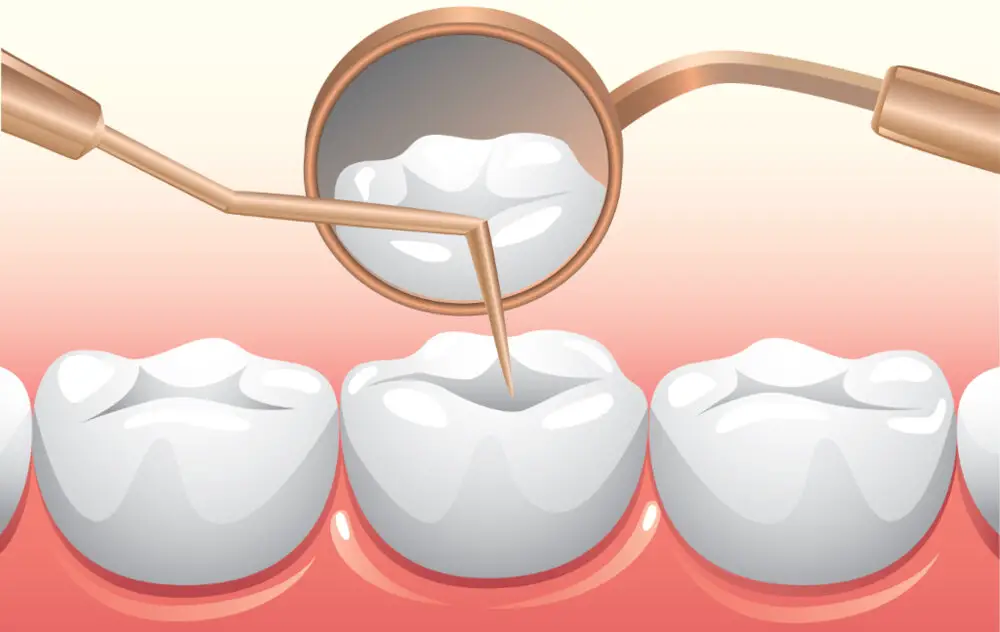
Prevention is always better than cure. This adage holds true when it comes to cold water sensitivity. To prevent tooth sensitivity, you should brush your teeth twice a day with a soft-bristled toothbrush and fluoride toothpaste. It is important to brush gently using circular motions to avoid damaging the enamel. Floss daily to remove food particles and plaque between teeth and below the gum line. This will prevent the buildup of bacteria and plaque that can cause tooth decay and gum disease, leading to tooth sensitivity. Another way to prevent cold water sensitivity is to avoid consuming acidic drinks and foods that can erode the enamel. This includes citrus fruits, carbonated drinks, and vinegar-based foods. If you do consume these foods, rinse your mouth with water afterward to neutralize the acid. Additionally, try to limit your intake of sugary and starchy foods, which can contribute to tooth decay. Lastly, regular dental check-ups and cleanings are essential to maintaining the health of your teeth and gums and preventing tooth sensitivity. By following these prevention tips, you can avoid the discomfort of cold water sensitivity and maintain a healthy, beautiful smile.
Brushing and flossing regularly are essential habits to maintain good oral health and prevent tooth sensitivity. When we brush, we remove the plaque and bacteria that can cause cavities and gum disease, which can lead to tooth sensitivity. Flossing helps to remove food particles and plaque from between the teeth and below the gum line, where a toothbrush cannot reach. By keeping our teeth and gums clean, we can prevent the buildup of bacteria and plaque that can cause tooth sensitivity. It is recommended to brush at least twice a day and floss at least once a day to maintain good oral hygiene and avoid tooth sensitivity.
Using a soft-bristled toothbrush is one of the most important steps in preventing and alleviating cold water sensitivity. Hard-bristled toothbrushes can cause damage to the enamel and gums, making teeth more susceptible to sensitivity. Soft-bristled toothbrushes are gentler on the teeth and gums, allowing for effective cleaning without causing further damage. Additionally, it’s important to use proper brushing techniques, such as gentle circular motions and avoiding aggressive scrubbing. By taking these steps, you can protect your teeth and reduce the discomfort of cold water sensitivity.
When it comes to relieving cold water sensitivity in your teeth, avoiding acidic foods and drinks is key. Acidic substances can worsen sensitivity by wearing down the protective enamel layer of your teeth, causing the underlying dentin to become exposed. This can lead to discomfort and pain when consuming cold or hot beverages. Some common acidic foods and drinks to avoid include citrus fruits, sodas, coffee, and alcohol. Instead, opt for neutral or alkaline options such as milk, water, and plain tea. By being mindful of your diet and choosing tooth-friendly options, you can help reduce your sensitivity and enjoy your favorite beverages with ease.
Wearing a mouthguard during sports is essential to protect your teeth from injuries that may occur during physical activities. A mouthguard can prevent tooth fractures, chips, and even tooth loss, which can be painful and costly to fix. Choosing the right mouthguard is also crucial as it should fit comfortably and not interfere with breathing or speaking. Moreover, a custom-fitted mouthguard made by a dentist is recommended as it provides better protection and comfort than generic ones. Therefore, if you engage in any sports activities, wearing a mouthguard should be part of your gear to avoid any potential dental problems.
Cold water sensitivity is a common dental problem that causes discomfort or pain in teeth when exposed to cold substances. This condition can be caused by various factors, such as receding gums, tooth decay, and enamel erosion. When the protective layer of enamel is worn away, it exposes the underlying dentin which contains tiny tubes that lead to the nerve endings. When cold water comes in contact with these tubes, it triggers a painful sensation. In addition to these causes, grinding or clenching teeth, using harsh mouthwashes or toothpaste, and consuming acidic foods can also contribute to cold water sensitivity. Addressing the underlying cause of the issue and taking preventive measures, such as using a desensitizing toothpaste or avoiding certain foods, can help alleviate the discomfort and improve overall oral health.
If you are experiencing cold water sensitivity, finding relief and prevention tips is crucial to maintaining your oral health and quality of life. Cold water sensitivity can cause discomfort and pain, making it difficult to eat or drink certain foods and beverages. Fortunately, there are several ways to alleviate this discomfort, including using desensitizing toothpaste, avoiding acidic and sugary foods, and practicing good oral hygiene habits. It is important to prioritize finding relief and prevention tips to minimize the impact of cold water sensitivity on your daily routine and prevent further damage to your teeth and gums. By taking proactive steps to address this issue, you can enjoy a healthier and more comfortable smile.
If you are experiencing cold water sensitivity, it is important to seek dental care to determine the underlying cause of your discomfort. Ignoring the issue can lead to further damage to your teeth and gums, which can result in more extensive and expensive treatments down the line. Visiting a dentist can provide you with a comprehensive examination and diagnosis, allowing for prompt treatment and relief from your symptoms. Remember that dental care is not just about maintaining a healthy smile, but also about ensuring your overall health and well-being. So, if you are experiencing cold water sensitivity or any other dental issues, don’t hesitate to make an appointment with your dentist today.
Conclusion
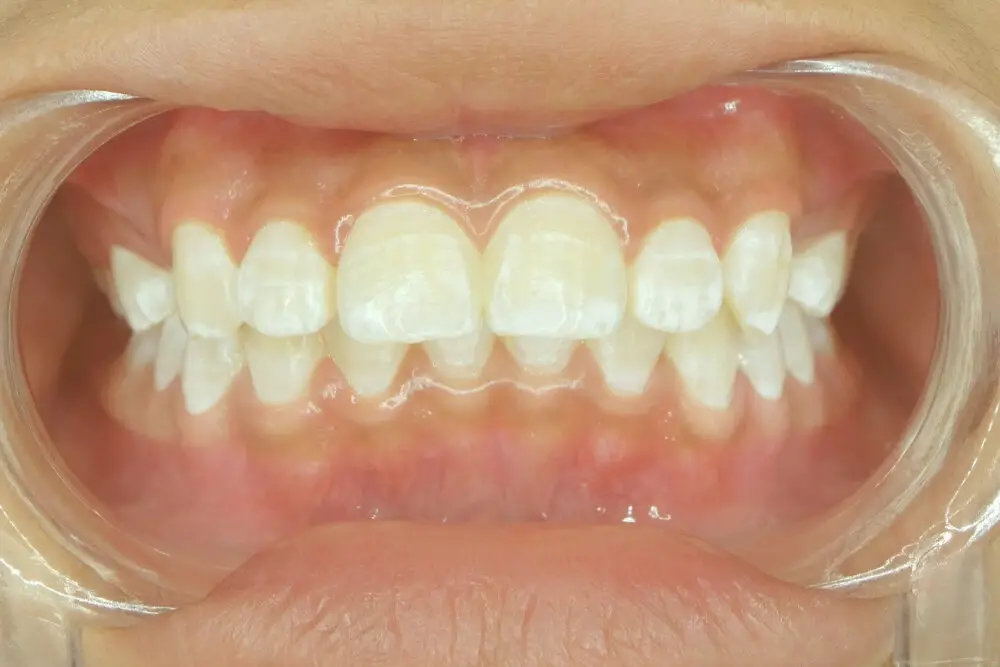
In conclusion, cold water sensitivity can be a frustrating and painful experience for many people. However, understanding the reasons behind it and taking steps to find relief can make a significant difference. Whether it’s using desensitizing toothpaste, avoiding acidic foods and drinks, or seeking professional dental treatment, there are many options available to manage cold water sensitivity. It’s important to prioritize dental health and address any concerns promptly to prevent further damage and discomfort. With the right approach, individuals can enjoy their favorite cold drinks and foods without fear of dental pain.
